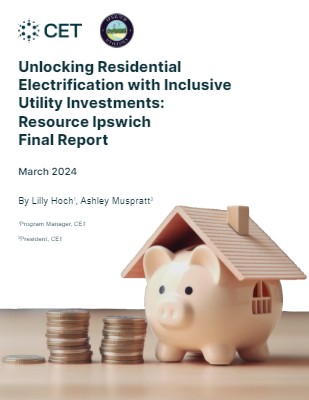Program Overview
The pilot program, initiated in July 2023, expanded on the existing ReSource Ipswich decarbonization assessment program by offering IUI to a select group of customers. The primary objectives were to demonstrate the viability of IUI across various customer types, validate its potential to finance priority measures like weatherization and heat pumps, and create a framework that could be scaled to other utilities.
With a capital investment ceiling of $100,000, the program targeted 4-5 homes with different customer profiles, including multifamily properties with renters, low-income households, and homeowners using oil or natural gas heating. The goal was to show that IUI could work for a diverse range of customers, even those who typically face financial constraints.
Key Results and Impacts
Customer Engagement and Project Execution
Out of six initial candidates, three projects were successfully completed, serving single-family homes heated by oil. The projects typically took about six months to complete, with the most extended phase being measure installation and invoicing. The program reduced customer costs significantly, with average project costs at $35,370 and upfront customer contributions averaging $6,217.
Lessons Learned
Conclusion
The Ipswich IUI pilot has demonstrated that utilities can play a pivotal role in accelerating the residential energy transition by investing directly in their customers’ energy efficiency and electrification improvements. While the pilot faced challenges, it provided valuable insights and developed a toolkit to help other utilities replicate its success. The future looks promising for expanding this innovative approach to more communities across Massachusetts and beyond.
the full report
